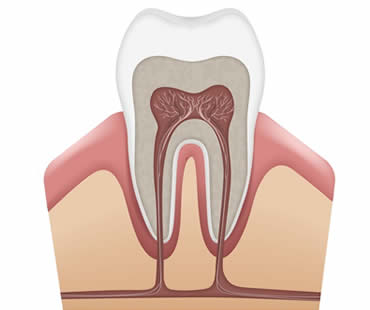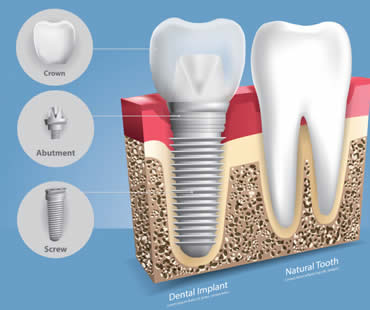
Jun 6, 2024 | Dental Topics 3, Family Dentistry, Blog
Family dentists care about you and your teeth from the moment you enter the world until the moment you leave it. They want to get to know you – and your teeth – and they have the expertise, knowledge, and skill to care for a child’s baby teeth and for his or her adult teeth. A family dentist focuses on preventative care, aiming to avoid any serious dental complications as you age.
Family dentistry offices are generally friendly, warm, and comfortable. They are specifically designed to put nervous or anxious children and adults at ease. The staff strives to build a relationship with each member of your family, offering a lifetime of dental care and advice on any issues that might arise.
A family dentist in Conyers could treat more than one member of your family in a single visit. Booking more than one appointment per visit is extremely convenient, and it can save you valuable time and effort by allowing you to be seen while your spouse or child is seen in an adjacent area. Don’t drive all over town for your family’s dental needs; see a family dentist instead!
Your family dentist will provide you and your family with the necessary oral hygiene skills needed to have a lifetime of good oral health. Your family dentist will ensure that each member of your family has the latest recommendations regarding brushing, flossing, and rinsing to prevent tooth decay and plaque between appointments.
A family dentist provides all of the services a standard dentist does, such as regular dental cleanings, check-ups, and x-rays. Other preventative treatments include sealants and fluoride treatments. A family dentist is able to treat cavities with fillings or to handle gum disease. Basic cosmetic dentistry procedures like tooth whitening are also offered.
The primary difference for a family dentist is the length of time a family dentist wants to see you. A family dentist can treat you for the rest of your life, and will use the knowledge about you and your particular oral health history to make the best decisions regarding your care in any situation that might arise.
Our dental office is located in Conyers

Sep 16, 2022 | Dental Topics 3, Root Canal Treatment, Blog
Root canal treatment is often a last resort for people who are experiencing tooth pain and want to save their damaged tooth. Although the procedure isn’t nearly as scary or painful as in years past, most patients view the aspect of this treatment with disdain. Recovery from a root canal is often no worse than recovering from a dental filling, but there are some issues that affect your ability to recover from root canal treatment.
Tooth condition
The severity of your tooth’s condition plays a big role in your treatment. If your infection or decay is not too advanced, it may mean an easier recovery than a patient with acute problems requiring extensive root canal treatment. Your dentist will determine the severity of your case and be able to prepare you for what to expect.
Dentist qualifications
Although all dentists are trained to perform root canal treatment, not all of them choose to offer this service as part of their practice. Your dentist may refer you to an endodontist, who is a dentist specializing in root canal treatment. These types of dentists are trained in all aspects of root canals and can handle even the most severe cases. Often, endodontists are so experienced and knowledgeable that they can even help shorten your recovery period after treatment.
After care
No matter which dentist performs your treatment, you should receive detailed instructions about how to care for yourself afterwards. You will be given guidelines about what to eat and what to avoid, how to handle pain, activity restrictions, and other details. There may also be mouth exercises suggested to follow to aid in your recovery. Make sure you keep any follow-up appointments to ensure proper healing.
If you need a dentist in Conyers contact us today

Apr 22, 2022 | Dental Topics 3, Root Canal Treatment, Blog
Root canal treatment is often a last resort for people who are experiencing tooth pain and want to save their damaged tooth. Although the procedure isn’t nearly as scary or painful as in years past, most patients view the aspect of this treatment with disdain. Recovery from a root canal is often no worse than recovering from a dental filling, but there are some issues that affect your ability to recover from root canal treatment.
Tooth condition
The severity of your tooth’s condition plays a big role in your treatment. If your infection or decay is not too advanced, it may mean an easier recovery than a patient with acute problems requiring extensive root canal treatment. Your dentist will determine the severity of your case and be able to prepare you for what to expect.
Dentist qualifications
Although all dentists are trained to perform root canal treatment, not all of them choose to offer this service as part of their practice. Your dentist may refer you to an endodontist, who is a dentist specializing in root canal treatment. These types of dentists are trained in all aspects of root canals and can handle even the most severe cases. Often, endodontists are so experienced and knowledgeable that they can even help shorten your recovery period after treatment.
After care
No matter which dentist performs your treatment, you should receive detailed instructions about how to care for yourself afterwards. You will be given guidelines about what to eat and what to avoid, how to handle pain, activity restrictions, and other details. There may also be mouth exercises suggested to follow to aid in your recovery. Make sure you keep any follow-up appointments to ensure proper healing.
Our dental office is located in Conyers

Feb 1, 2024 | Dental Topics 3, Dental Information, Blog
Modern lifestyles can be extremely stressful as many people have to deal with deadlines, demands and other frustrations that make up daily life. This can be an issue if you’re constantly under stress as it may affect your health. There are numerous health conditions that can be affected by high stress levels, and one of these is teeth grinding.
What Is Teeth Grinding?
Teeth grinding, or bruxism, is a condition that causes you to clench and grind your teeth together. It normally occurs during sleep so you may not even realize you have bruxism. This condition is likely to be identified by your family dentist in Conyers due to teeth becoming worn down and chipped, or quite often a sleeping partner will complain about the grinding noise during the night.
What Does Stress Have To Do with Bruxism?
Teeth grinding has been linked to high levels of stress and anxiety. It’s been shown that people under stress are more likely to grind their teeth, particularly if they don’t have any coping mechanisms.
How Could Teeth Grinding Affect Me?
Teeth grinding can have more of an effect than you might imagine. It can cause teeth to become cracked, sensitive or even loose. Excessive grinding can damage the gums and bone surrounding your teeth, or may cause a painful disorder called TMD. This affects the jaw joints or temporomandibular joints, and can cause headaches, earache and facial pain.
How is Bruxism Treated?
Your dentist in Conyers is likely to recommend a custom-made night guard which is worn while sleeping to protect your teeth and jaws from any further damage. It works through preventing your teeth from coming into contact. Additionally, you may be prescribed a muscle relaxant to help prevent clenching. It can be helpful to reduce stress levels through various measures which can include exercise, yoga, meditation or stress counseling.
We treat patients from Conyers and the surrounding area

Jan 14, 2022 | Dental Topics 3, Implant Dentistry, Blog
Restoring a missing tooth is not as unnatural as you might think with the help of dental implants. These restorations have transformed the ability of dentists to make your smile complete and fully functional without the worries of cumbersome dentures or bridges.
Dental implants involve surgically placing a titanium rod into the jaw bone, which will then fuse with the bone to become a part of your body. A trusted, experienced dentist or oral surgeon is the best professional for this procedure. The implant provides a stable and secure base for a replacement tooth which is later placed on top of the rod.
Most people with missing teeth are candidates for dental implants, although your dentist will perform an examination to make sure. Healthy gums and ample strong bones are required for a successful dental implant treatment.
There are two main types of dental implants. Subperiosteal is designed for patients with a shallow jaw bone that does not allow for rebuilding, so these implants are placed under the gums. Endosteal is for patients with a thick jaw bone, which is ideal for the implant being placed into the jaw bone using plates, screws and cylinders for support. Your dentist will advise which type of implants are best for you.
Once the implant surgery is performed, the area will be allowed to heal for up to a couple of months so that the artificial tooth or crown placed on top will be able to successfully complete the procedure. Once the entire treatment is finished, you’ll have a fully functional, comfortable and secure new tooth and root.
No special maintenance is required with dental implants. Normal brushing and flossing is recommended, as well as regular dental checkups to guarantee good oral health. Implants are made to last a lifetime with proper oral care. With this advanced treatment that dentistry offers today, you can expect a worry-free restoration that gives you back your smile.
Our dental office is located in Conyers

Sep 28, 2023 | Dental Topics 3, Family Dentistry, Blog
Dentists recommend seeing children for the first time when they have begun to cut teeth, by the time they have celebrated a first birthday. A first visit is primarily about allowing a child to get comfortable in the dentist’s chair and about educating you, the parent, on how to care for your child’s baby teeth. Most children who visit at this age will not remember the visit, but it will lay the foundation for positive experiences in the dental chair in the future.
Once children reach the approximate age of 5, they will have their first set of X-rays taken. The family dentist will review them to look for cavities between the teeth and to check proper development of dormant permanent teeth.
As children age, between 6 and 12 years, they will lose their baby teeth and permanent teeth will begin to erupt. At this time, your family dentist may recommend a tooth sealant. This plastic resin bonds to the “flat” chewing surface of a tooth, protecting it from debris and decay in the crevices.
Your family dentist may also give your child an orthodontic evaluation. Most pediatric patients begin orthodontics once all of their permanent teeth have erupted; however, some patients benefit from staged orthodontics and can begin treatment much sooner.
If your child has been seeing a dentist since infancy, introducing the child to the dentist isn’t an issue; your child already knows and trusts your family dentist. If you are bringing your child to the dentist for the first time as a toddler or kindergarten student, you should plan to spend some time talking about what to expect.
Many times, having parents sit in the dental chair and then hold their child on their laps is very comforting to the patient. Your family dentist has experience in dealing with fearful or anxious children and will know what to do in each case. Often, videos or music are employed to relax young patients.
You can trust your family dentist with each member of your family, no matter what the age. Talk to your family dentist today with any questions you may have about your child’s first dental appointment.
Our dental office is located in Conyers





